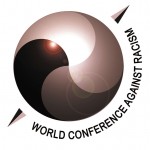Mon 2 Mar, 2009
U.S. expects to stay away from U.N. racism conference
Comments (2) Filed under: Politics, RemediesTags: Barack Obama, Durban, Islam, Israel, Racism, Reparations, United Nations
On Friday, the State Department announced that the U.S. does not intend to participate in the U.N. conference on racism in April unless there are significant changes to the working draft of the conference document, including toning down references to reparations for slavery.
This development appears to be the inevitable result of the Obama administration’s original position on the conference, coupled with the inability of the U.S. delegation to secure changes to the draft last week in Geneva.
The U.S. position
There has been considerable confusion and controversy over the State Department’s announcement on Friday, with some news media (and bloggers) interpreting the statement as a change in position, or even a reversal of a decision to participate in the review process. This problem was aggravated by sloppy journalism in certain cases; for instance, the Associated Press wire story was accurate, but was occasionally given misleading headlines (“US to boycott UN racism conference“). More respectable news outlets were more precise and made the continuity in positions more clear (“U.S. likely to skip ‘racism’ conference,” “U.S. May Boycott U.N. Racism Conference Over Document“), as have more thoughtful bloggers.
In fact, the original U.S. position was that a delegation would attend the Durban II preparatory session in Geneva, ending the U.S. boycott of the Durban process. However, at the same time, the U.S. announced it would only consider attending the review conference in April if the draft document were stripped of provisions which single out Israel’s treatment of the Palestinians, which call for restrictions on the “defamation of religion,” and which break new ground on the topic of reparations for slavery (see below).
At the preparatory session in Geneva, the U.S. delegation was unable to forge an agreement to modify those passages. According to a press release from the State Department:
Sadly … the document being negotiated has gone from bad to worse …. As a result, the United States will not engage in further negotiations on this text, nor will we participate in a conference based on this text.
The previous U.S. position, therefore, now requires that the U.S. not attend the review conference, absent a significant change in direction. Such an outcome is probably unlikely, but the U.S. has reiterated that it remains open to new proposals, and is “prepared to re-engage if a document that meets [its] criteria becomes the basis for deliberations.”
Reparations for slavery
The U.S. announcement that it does not expect to participate in the review conference in April has met with considerable anger, including from supporters of reparations for slavery. However, the U.S. position is primarily about Israel and the criticism of religion; on the issue of reparations, the Obama administration has taken a more nuanced stance.
The declaration adopted at the original 2001 World Conference on Racism in Durban, South Africa, made several compromise statements on the issue of reparations for slavery.
For instance, the Durban Declaration and Program of Action (DDPA) called on states “to take all necessary measures to address, as a matter of urgency, the pressing requirement for justice for the victims of racism, racial discrimination, xenophobia and related intolerance and to ensure that victims have full access to information, support, effective protection and national, administrative and judicial remedies, including the right to seek just and adequate reparation or satisfaction for damage, as well as legal assistance, where required.”
This language says nothing about whether reparations should be paid for historic acts of racism, and does not mention slavery at all. Nor does it say anything about whether the descendants of those victims today are entitled to reparations, either on behalf of their ancestors or because of ongoing victimization.
Elsewhere, the document made a number of statements about slavery and the slave trade, but deliberately stopped short of calling for reparations.
The current draft text for the review conference in April, however, goes further, specifically calling on states to pay reparations for slavery and the slave trade, including the transatlantic slave trade.
The U.S. position on reparations is simply that the review conference document should “go further than the DDPA on the issue of reparations for slavery.”

U.N. alters text for racism conference | The Living Consequences says:
[…] an important development in the controversy over next month’s U.N. conference on racism, negotiators have removed several controversial passages, including references to Israel, religious […]
Orlando Matthews says:
The United States government should be the litimus test for
democracy for the World to see and attend the Durban Review
Conference and participate in the discourse on the issue of reparations for AfricanAmerican slave descendants and the discussion on human right abuses against other countries,
like Palestine,Native Americans,Black Hawaiians,the countries in the West Indies and on the contient of Africa
who were effected negatively by the TranAltantic Slave Trade.